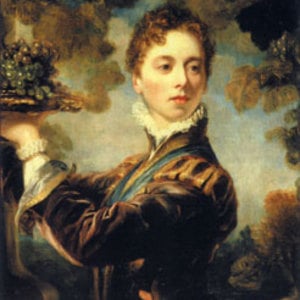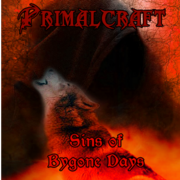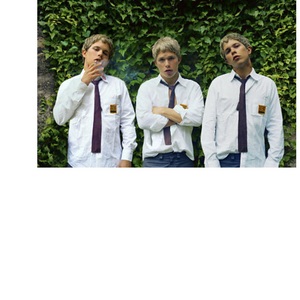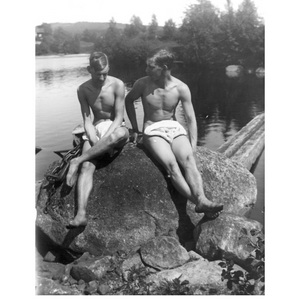Harrow may have been one of the most exclusive, most expensive and most demanding schools in the country. It was also among the most snobbish. Byron, whose mother claimed to be descended from the Stuart kings and queens of Scotland, knew what snobbery was. He thought his mother was foolish, but he was used to her. Even he was surprised, though, at how many of the boys looked down on the other boys.
It was partly to do with how the school was run. The teachers, or "masters" left most of the discipline to the older boys. The oldest boys were eighteen. The youngest were twelve and thirteen. In theory the older ones took care of the younger ones. In fact, it was chaos. Bullies ruled. The younger ones needed the protection of older boys to survive.
The older boys extracted a price from the younger boys for their protection. The younger ones were forced to bring breakfast to the older boys. They were forced to polish their boots. They were expected to bring toast for their tea. Sometimes the younger boys were expected to keep the older boys warm at night in their beds.
Nor was this always a matter of being forced. Often affection grew between the older and younger boys. The older ones had themselves once been new in the school where the younger ones were now. They knew it was hard. The younger ones were grateful for some knowledge about how to behave and for some genuine safety from the boys who were known ruffians.
Byron's trouble was this. He was a proud boy. His pride came from defensiveness and insecurity. Harrow was filled with children of the aristocracy. Like Byron himself, they’d inherited their titles unusually young. Like Byron himself, who’d become a baron at the age of ten, they’d also inherited estates. The future Duke of Devonshire slept down the hall from Byron. The Earl of Clare, a year younger than Byron, had recently arrived. These boys would one day command princely estates, not struggle with their ancestors’ debts, as Byron did. These other boys would one day inhabit castles, not barely habitable ruins, which is what Byron's house at Newstead was. Among these boys, Byron's barony was nothing. His estates were nothing.
On top of this, Byron had been born with a club foot. His right foot would not press flat on the ground. It turned inward so that when he walked he put all his weight on the outer bone of the foot, not on its sole. He had a special boot that helped him conceal this. He couldn't conceal the fact that he had a slight limp when he walked. He couldn't conceal his inability to run as fast or as far as the other boys. He had shining dark hair, which he wore long and over his ears. He had a high pink color in his cheeks. Byron was handsome, but everyone knew what he was hiding in his special boot.
The older boys were not slow to point out what they noticed. They called Byron "crip," short for cripple. They called him "gimp." They said he was "lame" and not in the metaphorical sense, but in the sense that a racehorse could be lame and would need to be put down. Shot. Killed. They didn't try to kill Byron, but their words felt killing. They were especially harsh with him because they saw his pride. They thought him stiff-necked. He always held his chin so high. They were determined to bring him down. He would not let them. One consequence was that, unlike the other younger boys, Byron had never succeeded in gaining an older protector. He felt the full onslaught of the bullies, and this was not always verbal. He sometimes went to bed with arms and jaw throbbing from blows the bullies landed on him in scuffles.
Clare’s invitation for a swim was the first friendly overture that had ever been made to him at Harrow. He’d already been there for three years. That didn’t stop things from being awkward between them. When they got down to the pond that hot afternoon, they were shy about getting undressed in front of one another. There was no question of wearing a swimsuit. All the boys swam naked. It was the custom of the school and the culture of that era not to care about male nakedness, especially when only men or boys were present. Nevertheless, Byron said he’d just undress behind a rhododendron.
“Why?” asked Clare. “Are you afraid I’ll be shocked?” He had an engagingly boyish laugh. This was at odds with the already adult planes of his broad chest and flat belly, which Byron could see after Clare removed his shirt.
“No,” answered Byron. The fact was he was shy about showing his foot to anyone. He didn’t let other boys see it, even in the bath if he could stop them.
“Are you afraid that dogs will bark at you as you halt past them?” Clare was referring to Richard III, England’s most famously deformed king. Shakespeare had made Richard complain that he was so lame that even dogs barked at him as walked haltingly past them. Clare was teasing Byron, but it was a harsh tease for a friendship as new as theirs was.
Byron was so shocked that he didn’t know at first what to do. Then an inspiration came to him. He came limping around the rhododendron and vaulted through the air on to Clare’s back. “You dare compare me to old Richard Hunchback?” The two boys fell into a rolling wrestle along the banks of the pond, half undressed, laughing so hard they couldn’t concentrate on winning or losing.











Comments (0)
See all